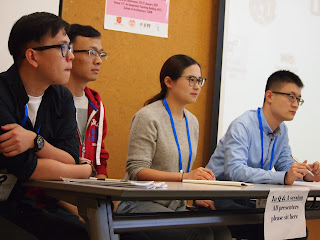Title: Mobilising Concern - The Ethical Challenges NGOs Face in Visually Representing Social Problems
Speaker: Robert GODDEN (Director, Campaigns and Communications, Rights Exposure)
Date and time: 3 February 2017, 1:00p.m.-2:30p.m.
Venue: Room 115, Humanities Building, New Asia College, CUHK
Date and time: 3 February 2017, 1:00p.m.-2:30p.m.
Venue: Room 115, Humanities Building, New Asia College, CUHK
************************************************************
Charitable organisations working on social problems such as human rights and poverty need to raise concern and mobilise action amongst the public in order to have impact. To do so often requires them to visually represent the suffering of 'distant others'. This presents them with a number of strategic and ethical challenges in how to present complex problems, communicating the need for action, yet not dehumanise, disempower, or stereotype communities and populations. Existing power relationships between those who picture/communicate the problems and those who experience them are sometimes complicated by historical colonial relationships. This talk will look at some of the challenges NGOs face in their visual communications, and ask how they can be effective and at the same time avoid ethical pitfalls?
Robert Godden is a human rights campaigner specialising in visual communications. He is currently the Director of Campaigns and Communications at Rights Exposure, a consultancy focussing on the rights of migrant workers. Previously he was the Asia-Pacific Campaign Coordinator at Amnesty International.
All interested are welcome!















